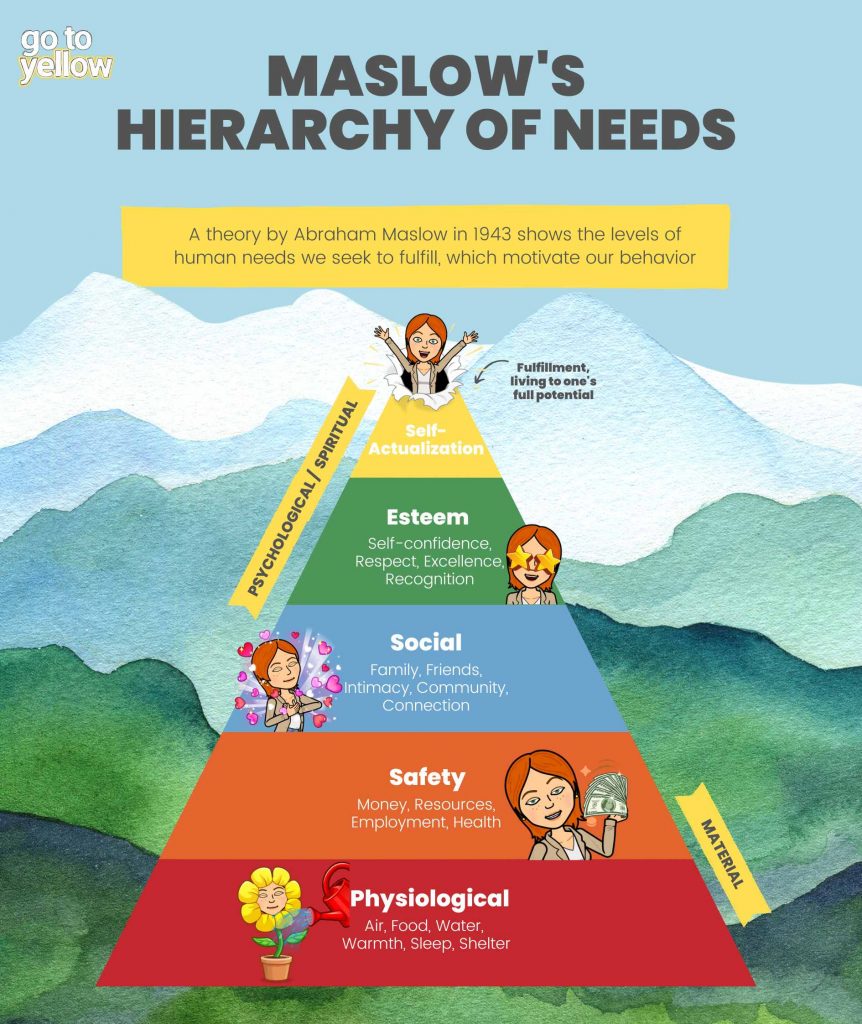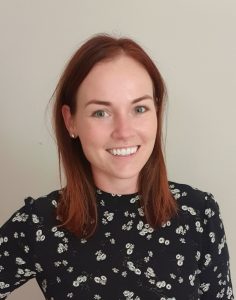
Redefining Success | Resorting Life Balance
What is personal development: the Guide
The personal development industry is one that always continues to grow. This makes sense because the need to self-develop and elevate has always been apparent to human beings.
Dating to years, Aristotle, an ancient Greek philosopher who lived over 2000 years ago, is one of the founding fathers of modern personal development.
Today, we have many names of stature in the personal development industry spanning to and from different sub-niches, i.e. Psychology, Philosophy, Sociology, Human Resources, The arts, etc.
In their ways, these industries combine to forge a vast personal development industry. This post will discuss personal development in depth.
What is Personal Development?
Personal development is a lifelong personal journey. It is constantly assessing and adjusting how you live and how this adds to your overall satisfaction and success.
Personal development spans different parts of a person’s life. For one person, it may be about defying weaknesses and maximising strengths. For another person, it may be about unlearning toxic behaviour and adopting new ones.
In a work environment, personal development can be intentionally working on communication skills to become a better teammate or anything else necessary for such a space.
Because the determining need to self-develop will differ from individual to individual, the outcome of personal development looks different for people.
For one person, personal development is for the glory of gaining more confidence; being better at relationships; being an attractive work prospect, or simply leading a high-quality lifestyle.
Whatever your course, you need to embark on your personal development journey with intention and map out why it’s of importance to you.
Why is personal development important?
We estimate the personal development industry’s market size to be over 50 billion dollars. With this enormous sum, ask yourself what makes it so popular; or so important. I like to believe it is its importance that makes it popular.
It goes back to what separates humans from animals. Humans are intelligent and emotional beings. The great capacity we possess in these respective areas comes at a price.
As we go through life, aware of our complex cognition and emotions, even more complexities come to be. And this is where personal development comes in.
Committing to improving yourself and how you relate to your cognition and emotions helps you be attuned to the weaknesses and strengths that may affect these areas.
Though embarking on a personal development journey is a choice, people have an innate need to grow. When one feels like there’s a barrier between them and where they want to be; the automatic need to self-develop kicks in.
In some ways, personal development nurtures your self-awareness and self-esteem and helps you adopt better ways to navigate your personal barriers. It is such an important thing because it is an ongoing attempt to be better. And this is a good thing for any individual.
How to identify your own Personal development areas?
Since personal development is a personal journey one commits to for personal reasons, it is very important for each individual to identify their own personal development areas.
There are 5 areas of personal development, I.e. emotional, mental, social, spiritual and physical.
No one area precedes the other because these areas can all affect each other. But ideally, start with mental development.
Your mental state can affect other development areas, both dramatically and perpetually. For example, physical exercises require physical strength and mental willpower to get into it.
Social spaces can also trigger detrimental mental responses. But for someone who has trained themselves to respond accordingly to expected and unprecedented contexts, they have the mental strength to persevere.
Also, for the sake of your mental well-being, you shouldn’t overwhelm yourself by committing to all these areas at the same time. Rather, be patient and realistic with yourself.
Ask yourself crucial questions before you start your journey.
- Where do you excel?
- Where do you struggle?
- How do you feel about your life?
- What goals are you aspiring for?
- Are you better at professional or social relationships?
- Which self-development area is affecting other parts of your life?
Don’t be afraid to look at yourself as you are and make the best choices for yourself.
Abraham Maslow’s self-actualisation
Self-actualisation is one theory that encourages addressing all your needs to fulfil your potential. According to Abraham Maslow, a humanistic psychologist, humans have an intrinsic need to develop and fulfil their potential in life.
He asserts it is necessary for humans to develop their needs from the ground up, starting with physiological needs and with self-actualisation at the top. In between there’s safety & security, love & belonging and self-esteem.
In its entirety, self-actualisation theory contends for basic needs and is inclusive of personal development areas.
This is why we recommend following the self-actualisation pyramid to position oneself better to have the willpower to tackle personal development areas. As affirmed by Maslow, the need to develop our complex positions will typically be absent if we do not first meet our basic needs.
According to Maslow, self-actualisation is the ultimate realisation that one can achieve anything set to mind. That co-occurs with a full appreciation of one’s life and its surroundings.
Self-actualisation traits
- Autonomy and independence
- Democratic character structure
- Feelings of kinship and identification
- Accepting of others and yet true to self
- Clear, efficient perception of reality
- Have missions to complete outside of self
- Detachment and need for healthy privacy
- Balance between polarities in personality
- Ethical discrimination between good and bad
- Sense of appreciation and exuding gratitude
- Philosophical non-hostile humour to others and self
Given the traits attributed to self-actualisation, intending to reach this stage is a good thing.

How to develop a personal development plan?
Your approach must also be thought through now that you understand personal development. You need to have a personal development plan.
This plan will help you pick out areas you need to develop as well as the best approach for yourself; provided you don’t skip out on it. Starting with a swot analysis.
Choose your development area and do a personal swot analysis
A personal swot analysis, much like a business swot analysis, is a method of identifying your strengths and weaknesses to best determine how to maximise and minimise them.
As an abbreviation, swot stands for:
S – STRENGTHS
W – WEAKNESSES
O – OPPORTUNITIES
T – THREATS
By default, a personal analysis will ask questions concerned with one’s personal life. However, they are not limited to that.
You want to use a personal swot analysis as a fundamental reference despite the personal development area you want to develop.
Even in business, a personal swot analysis goes a long way because your success is always a direct reflection of your personal capacity and approach.
STRENGTHS
| WEAKNESSES
|
OPPORTUNITIES
| THREATS
|
In each slot, you may relate the questions to different things. It all comes down to where you are as an individual and the personal development area you plan to develop.
For example, if you are targeting mental development, the question “what’s something that works against me” will question a part of your life that strains your mental health.
And if you’re developing your social area, that question would now be concerned with characteristics that fail your social relationships.
Iron out your personal vision
Once you know the personal development area you want to develop and complete a personal swot analysis around it, it’s time to map out what moving away from your current position to the one you inspire to be in looks like.
“What does my personal vision look like, and who does it need me to be?”
A personal vision, which is just a fancy way of saying a vision statement, is a statement that declares what you want to achieve and the most idealistic position you want to assume in the long run.
Whether condensed or long, your personal vision should account for your values, strengths, and goals. Above all, your vision must be an achievable goal.
This is a statement to always fall back to as a reminder of where exactly you’re going and perhaps be a motivation that keeps you going when the going goes tough.
How to create a personal vision?
To make this process less complicated, you want to outline a few things and work according to them, starting with your strengths.
STRENGTHS – What innate abilities do I possess?
- What am I good at?
- Where do I compete better?
VALUES – Think about the personal standard you hold yourself to
- What are my non-negotiable values?
- What kind of person do I aspire to be?
- What is desirable and not desirable to me?
ACQUIRED SKILLS – What did I learn I am good at?
- What skills have I learned in my life?
- How can I use things I learned to my advantage?
- Do my skills make me favourable in any way? How?
ULTIMATE GOAL – Where do I want to be?
- Where would I like to be?
- How do I want to change?
- What does my desired change look like?
PERSONAL VISION – What idealistic position do I want to be in?
- What do I want to do on a day-to-day basis?
- What does a perfect life look like for me?
- When I narrow down options, which one do I want the most?
In the end, you will use answers to these questions to write your personal vision statement.
These questions will differ as per the reason you are developing yourself. For example, these questions will revolve around a chosen field if you’re developing your career.
Develop a personal development mindset.
It takes an average of 66 days to make a new habit stick. Even after that, slacking just once can set you back to the beginning. With that said, you can imagine how outlining your personal development aspects is just the beginning.
The tough part is committing to your plan and seeing it through. It is going to take some willpower and dedication. But with the following approach, you can do it.
- Break down your goals
One big goal is scary. But that’s no reason for you to shy away from your wildest dreams. Instead, continue to target scary and overwhelming goals but break them down into small parts. This process helps you set smart goals.
S- Smart, M- Measurable, A- Achievable, R- Relevant, T- Time-bound.
Imagine your goal as a long road trip.
The 1st step for you to take would be to set up your dynamic and static ropes. Your dynamic rope, the one that will stretch and absorb the impact when you fall, is made of all the lessons, habits, and insight you gained when taking small steps toward your big goal.
The static rope, the efficient one that stretches a little to lower you and haul you up. This rope is all the small steps you’ll take to get to the big goal.
The static rope helps you to achieve short-term goals, while the dynamic rope anchors the long-term goal.
Think of it this way. If your ultimate personal goal is to be a better mother, then learning to be patient, better at communicating, and less distracted would be the small steps you need to take.
If you want to build a business, separating milestones would be less overwhelming. For example, the 1st goal is to register the business before worrying about marketing.
After this part, follow through with the next steps.
- Set deadlines for each small goal you outline.
- Be mindful of threats and opportunities
- Delegate whatever you can
- Have a way to measure progress
Setting deadlines is important because you don’t want to be stuck on one small goal forever. Being mindful of threats and opportunities provides the needed flexibility to adapt and not despair when things change you.
You should delegate if you can afford to and measure your progress to see how close or far off you are to the ultimate goal.
Develop your personality to fit your goals
When I was a relatively bright student in secondary school, one of my teachers told me I would struggle with my studies in University because:
- No one chases you to do your work at university
- My playful and laid-back approach will work against me
- It will be hard to adapt my horrible working style to university demands
Despite my capabilities; he basically told me I was my worst enemy. Though in my case, he was wrong, people being their own worst enemies is not uncommon, and Dr. Brain R. Little affirmed this.
In his acting out-of-character article, Dr. Brian R. Little, a Professor, author, and speaker, wrote about how your personality can work against your success. He emphasised the need to ‘act out of character’ for the sake of your success.
“Human personality plays a striking and subtle role in shaping the course of our lives in the immortal profession. Arrogance, shyness, bounciness, and hundreds of other traits of personality influence how others see us and how we see ourselves. They have important consequences for the shape of our lives.”
Consider the big 5 personality traits as per contemporary psychology. Whichever you embody, they all have pros and cons. And the cons are the ones to adapt for the better if they work against you.
- Openness
People with this personality trait are imaginative, insightful, curious, eager to learn with a broad range of interests.
On the flip side, their openness can lead them down an overwhelming path as they take on more than they can handle.
- Conscientiousness
People with this personality trait are thoughtful, goal-oriented, organised, and pretty much finish deadlines.
On the other hand, they can be perfectionists who struggle to work in fast-paced, changing environments.
- Extraversion
People with this personality trait are social, talkative, excitable, outgoing and enjoy meeting people.
On the other hand, these people can be easily distracted and neglect their goals. They can also overestimate other people’s presence a lot, which can sometimes be a con.
- Agreeableness
These are the people who are kind, altruistic, empathetic, cooperative and enjoy helping others.
On the other hand, agreeable people can easily be taken advantage of and also exhaust themselves to a point where they are left with nothing to offer themselves.
- Neuroticism
These are people who are moody, chronically sad and all round emotionally unstable.
While the defining traits are not great, neuroticism goes hand in hand with creativity and problem-solving, and one can maximise these traits.
The trick is to get to know yourself as much as possible and learn to adapt the negatives to not work against you as per your chosen personal development area and development plan.
“You may not be naturally open and extroverted. But given an important occasion or project, you have little choice but to act out of character, to rise to the occasion and be an alternative you — in a sense, perhaps, an optimised you.”
Advantages of developing yourself ‘personally’
Having emphasised the need to choose a personal development area before outlining a plan, let’s talk about why developing yourself puts you at an advantage.
Whatever area you decide to focus on, i.e. career, relationships, mental health, etc. You cannot separate the outcome of your success from who you are as an individual and where you are in your entirety.
Therefore, before everything else, the self-development journey should be concerned with who and what one is at the core. Understand that the innate traits that set you apart and make you who you are can be a disadvantage as much as they can be an advantage.
If your innate traits are going to have a ripple effect on any part of your life, you might as well develop them to have a positive impact and add to the following advantages:
- Strong sense of self-awareness
You will make better decisions for yourself and your life when you know yourself and what you expect from yourself and your surroundings. Consistently committing to developing yourself certainly helps you get to know yourself better more and more.
- Living a balanced life.
A disadvantage of not knowing what you want out of life is allowing multiple things to pull you in different directions, even when you can do without them. One can end up overwhelmed by demands that do not even fulfil them. The opposite can be said for someone whose personal development journey grounds them.
- Defining your life goals
Often the instigator of personal development journeys, having defined goals, is a catalyst of progress and success because despite facing challenges, at least you are working towards clear goals, and any adjustment is still towards the same achievement.
- Building healthy relationships
When you are sure of yourself, and what adds value to who you already are, you will choose and gravitate towards connections that affirm you in the best way possible. You will reduce the likelihood of forging potentially toxic relationships.
- Motivated to be a success
One obstacle that limits success is not knowing what you want to do with your life. This is why people who know what they want out of life are motivated to chase the said thing. In retrospect, people who don’t know waste a lot of mental energy figuring out what they want.
- Strong self-control
Human beings are what they are because of their emotional and intelligent nature. At our worst, our emotions and intelligence can be the worst of us. This is why it is important for you to have some control over what you feel, think, and how you behave because of the preceding two factors. Self-control also aids temptations, habits and impulses.
- Strong boundaries and decisions
When you know what you stand for and your ultimate goals for your life, you refuse to take on obligations you have no business doing. You know what makes sense to your journey and can make hard decisions that filter out the unnecessary fluff without being paralysed.
- All-round fulfilling life
All in all, personal development has a ripple effect on all areas of your life. Ultimately, this is a journey that nurtures multiple shortcomings and strengths, creating a life of balanced demands and progressive solutions. An individual having an extensive understanding of all areas that can affect them nurtures this all-round fulfilling life.
Ready to start your personal development journey? Download our free tool to help you map out your journey.
Alternatively, you can join our personal development coaching programme.
What are the benefits of personal development coaching?
There are many potential benefits to participating in personal development coaching. Some of the most common benefits include:
Increased self-awareness: Personal development coaching can help you gain a better understanding of your strengths, weaknesses, and values, which can lead to improved decision-making and increased personal fulfillment.
Improved performance: By setting specific, measurable goals and developing action plans to achieve them, personal development coaching can help you improve your performance in various areas of your life, such as your career or personal relationships.
Enhanced communication skills: Personal development coaching can help you develop effective communication skills, which can improve your relationships with others and make it easier to achieve your goals.
Greater personal and professional satisfaction: By working with a personal development coach to identify and pursue your goals, you may experience greater satisfaction and fulfillment in your personal and professional life.
Increased confidence and motivation: Personal development coaching can help you build self-confidence and increase your motivation to pursue your goals.
Improved problem-solving and decision-making skills: A personal development coach can help you develop the skills needed to effectively identify and solve problems, and make informed decisions.
Who is personal development coaching for?
Personal development coaching is for anyone who is looking to improve their personal or professional life and achieve their goals. It is a helpful resource for individuals who want to increase their self-awareness, build new skills, and make positive changes in their lives.
Personal development coaching can be particularly useful for people who are:
- Seeking to make a career change or advance in their current career
- Looking to improve their personal relationships
- Seeking to increase their self-confidence and motivation
- Struggling to manage their time or set and achieve goals
- Seeking to improve their overall well-being and happiness
- Looking to make a positive change in their lives, but are unsure how to do so
If you are facing any of these challenges or simply want to improve your personal or professional life, personal development coaching may be a helpful resource for you.
Which personal development coach is for me?
There are many different personal development coaches available, and it is important to choose one that is a good fit for your needs and goals. Here are a few factors to consider when choosing a personal development coach:
Expertise: Look for a coach who has experience and training in the specific area you are looking to work on. For example, if you want to work on your career development, look for a coach who has experience helping others advance in their careers.
Approach: Consider the coaching approach of the personal development coach. Some coaches may use more structured approaches, while others may be more flexible and adapt their approach to meet the needs of their clients. Choose a coach whose approach aligns with your preferences and goals.
Personality: Personal development coaching involves a personal relationship between the coach and the client. It is important to find a coach with whom you feel comfortable and can build a rapport.
Availability: Consider the coach’s availability and whether they offer sessions at times that are convenient for you.
Cost: Personal development coaching can vary in cost, so it is important to consider your budget when choosing a coach.
It may also be helpful to speak with a few different coaches before making a decision, to get a sense of their style and approach and determine which one is the best fit for you.
"You don’t have to be great to start, but you have to start to be great.”
Need further help with personal development coaching? Get in touch.
Book a no-obligation 30-minute call with Tammy Whalen Blake to discuss the best program for your personal development needs.

Tammy Whalen Blake
Founder of go to yellow
Personal Development Coach
Hear what others have to say...
client success stories







